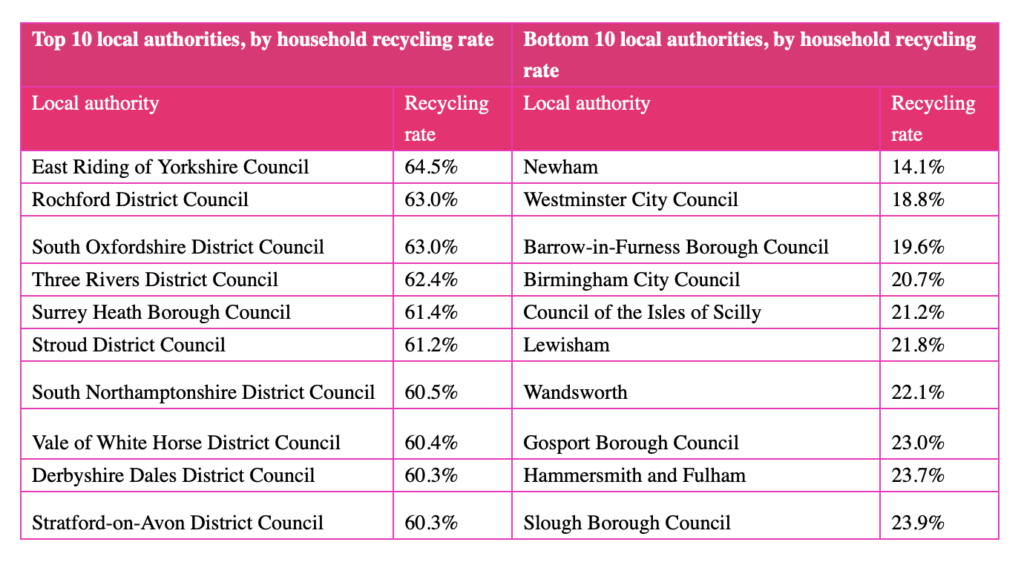Use “smart bins” to give tax cuts to households that recycle, says think tank
A new generation of “smart bins” could allow households who recycle to be rewarded with council tax cuts, a think-tank has said.
Bins fitted with waste sensors could record household recycling rates, allow councils to save money from better-planned rubbish collection routes and then pass on the savings to residents who send the least waste to landfill, according to the Social Market Foundation.
The recommendation comes in a new report on the use of “tech in the town” which examines the best way to win popular consent for new technologies that could provide better, more efficient delivery of public services.
Sensor technology that monitors and reports bin “fill-levels” is already in use in some UK councils such as Rugby and Wandsworth, who have used it for litter bins on streets and other public places. With bins only emptied when full, this has resulted in significant financial savings. Some smart bins automatically compress waste, reducing the frequency of collections.
The SMF suggested that using similar technology in the home could deliver significant benefits too, and encourage households to recycle more.
The SMF report is the third in a series, supported by Vodafone, looking at the benefits and challenges associated with the Fourth Industrial Revolution (4IR) – the rise of robotics, big data, artificial intelligence and autonomous vehicles which is set to drastically change our lives.
In its latest report, the SMF highlights a range of applications of 4IR technologies in local government. These include:
- Smart bins fitted with fill sensors – meaning bins can be emptied on an as-needed basis. Smart bins are already being developed which automatically separate recyclable and unrecyclable waste, helping to reduce the amount of rubbish going to landfill.
- Smart street lighting – which activates when people and vehicles are nearby, reducing light pollution and energy usage.
- Parking space vacancy sensors – which help guide individuals to available car parking spaces.
- “Road repair drones” – which identify potholes and repair these by spraying asphalt.
In the report, the SMF argues for a new Council Tax rebate to be introduced for households that produce less waste – something that could be measured easily with the rollout of electronic smart bins. This rebate would incentivise households to recycle more and waste less – driving up recycling rates across the country.
The prospect of financial rewards for using smart technology might also boost acceptance, the think-tank said, suggesting a “carrots not sticks” approach to technology and waste.
Analysis in the SMF report shows huge differences in household recycling rates across the country. While 64.5% of household waste was recycled, reused or composted in the East Riding of Yorkshire in 2017/18, just 14.1% of waste in the London borough of Newham was.
Table 1: Top 10 and bottom 10 local authorities in England, by recycling rate, 2017/18
Scott Corfe, Chief Economist at the SMF and author of the report, said:
“Quite rightly, there is growing concern about the environment and the amount of waste produced by UK households. Local government needs to explore how new technologies – including smart bins – can dramatically drive up recycling rates and reduce waste.”
“Critically, we need to ensure that all parts of the UK are doing their bit to reduce the amount of waste going into landfill. At the moment there are huge differences in recycling rates across the country, ranging from close to two thirds in East Riding of Yorkshire to a paltry 14% in the London Borough of Newham.”
“To get households on board with the green agenda, it is important that carrots are used, as well as the occasional stick. A Council Tax rebate for households that do their bit for the environment, by not producing as much as waste, would be a good reward for doing the right thing.”
Some councils have reduced the frequency of domestic waste collections, to encourage households to recycle more. Technology that allows the more efficient use of bins, coupled with financial incentives, could be a more effective tool, the SMF suggested.
Notes:
The SMF is a registered charity and committed to disclosing all its sources of funding. This report was sponsored by Vodafone. The SMF retained full editorial independence.
A copy of the report will be available on the SMF website on Monday 13th May at 00:01.
For more information or to arrange an interview, or for other media enquiries, please contact:
Scott Corfe, Chief Economist, scott@smf.co.uk, 07801 961729
James Kirkup, SMF director: james@smf.co.uk and 07815 706 601
Barbara Lambert, SMF media officer: barbara@smf.co.uk and 07540 544 692
About the SMF:
The Social Market Foundation (SMF) is a non-partisan think tank. We believe that fair markets, complemented by open public services, increase prosperity and help people to live well. We conduct research and run events looking at a wide range of economic and social policy areas, focusing on economic prosperity, public services and consumer markets. The SMF is resolutely independent, and the range of backgrounds and opinions among our staff, trustees and advisory board reflects this.

